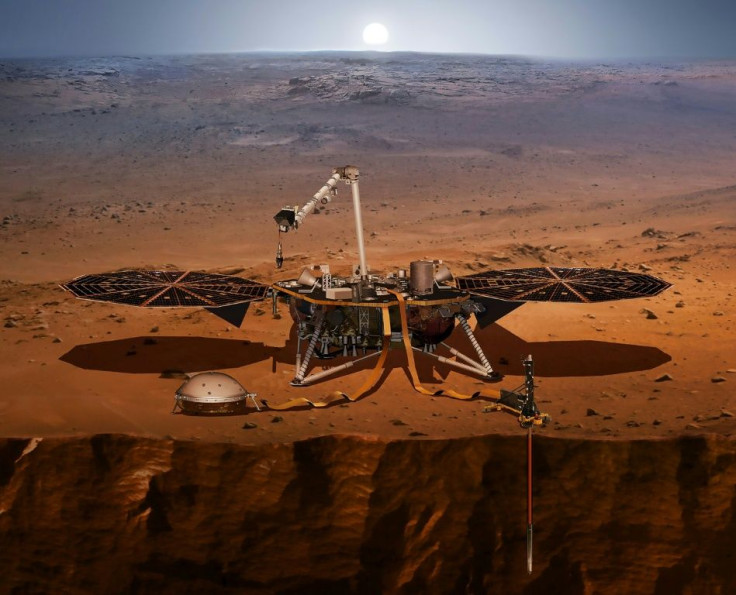NASA Mars Mission Mystery: What Could Explain Oxygen Spike?

Oxygen might not be as rare on the Red Planet after all, according to a recent discovery made by the Mars Curiosity rover.
Based on six years’ worth of data sent back by the rover to NASA, it turns out that oxygen concentrations in the Martian air tend to spike during the spring and summer of every Martian year, by as much as 400 parts per million — thirty percent more than what scientists expect from the planet.
Per a report, this new development is thanks to the ground-based data sent in by the Curiosity rover. Previously, oxygen readings on Mars were taken by telescopes and orbiters that we're unable to take accurate measurements due to the presence of dust particles in the Martian atmosphere.
Scientists are currently at a loss as to what could be causing this yearly spike in oxygen concentrations. Some believe that the chemical process in which the ultraviolet rays of the Sun break down carbon dioxide and water vapors in the planet’s air could be the reason behind the spike.
However, the possibility is small due to the fact that the process isn’t fast enough to contribute more than 0.13 percent of the oxygen in the atmosphere of the planet.
Other scientists believe that the effect of cosmic radiation on perchlorates, toxic salts present in the soil of the Red Planet, could be the culprit behind the seasonal rise of oxygen. The compounds present when the salts are broken down could, in theory, lead to the release of more O2 in the atmosphere. But as with the chemical process theory, this process is also too slow to explain the numbers.
Hydrogen peroxide concentrations in the soil are also thought to be a potential source of oxygen. The same process that breaks down carbon dioxide and water can also lead to the creation of hydrogen peroxide, which can seep into the planet’s soil and serve as caches of oxygen. The amount of this chemical in the soil would have to be astronomical in order to match the data reported by Curiosity.
Scientists are fast to assure people that the source of the oxygen spike is not photosynthesis. This is because signs of life have yet to be found on Mars.
© Copyright IBTimes 2024. All rights reserved.





















